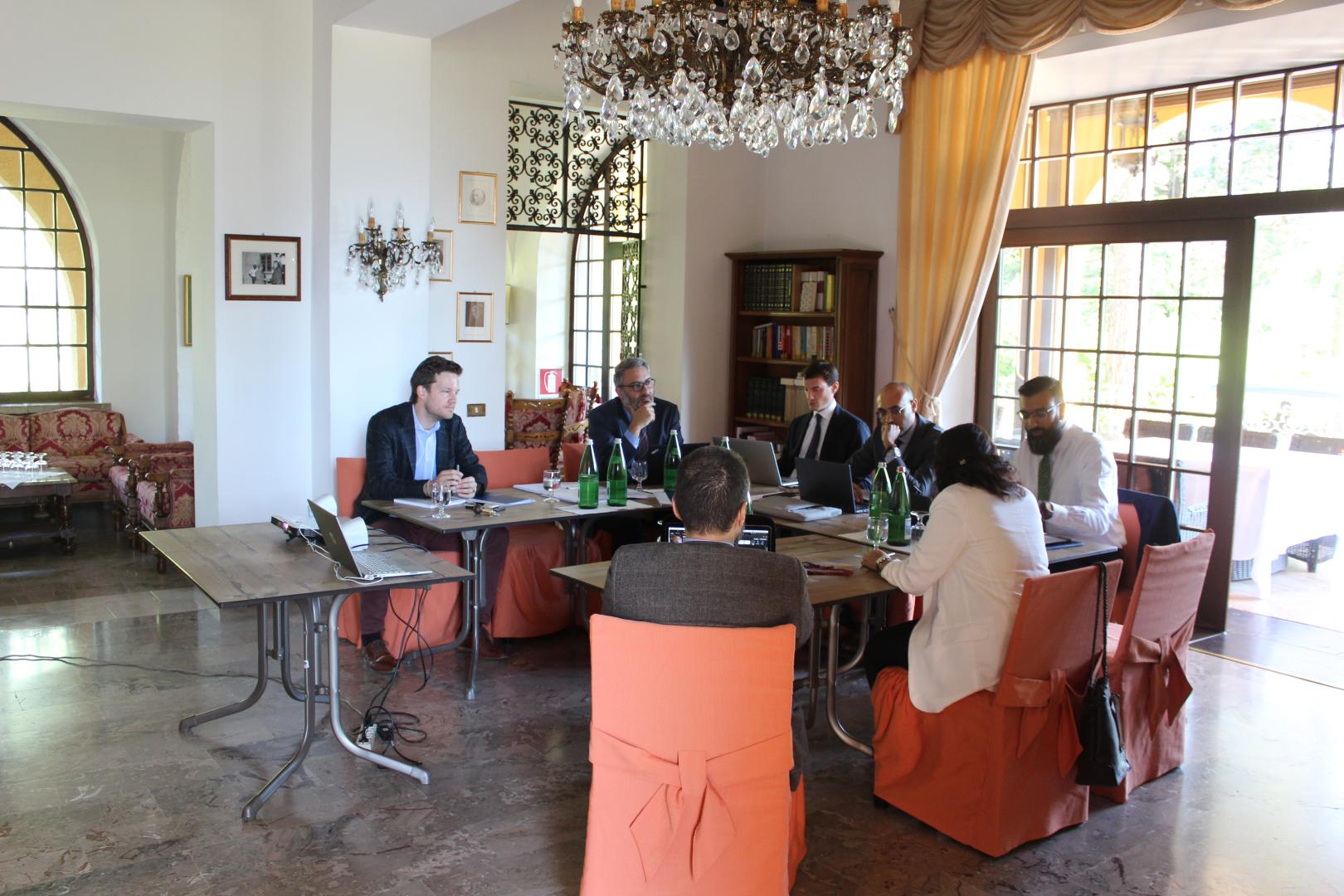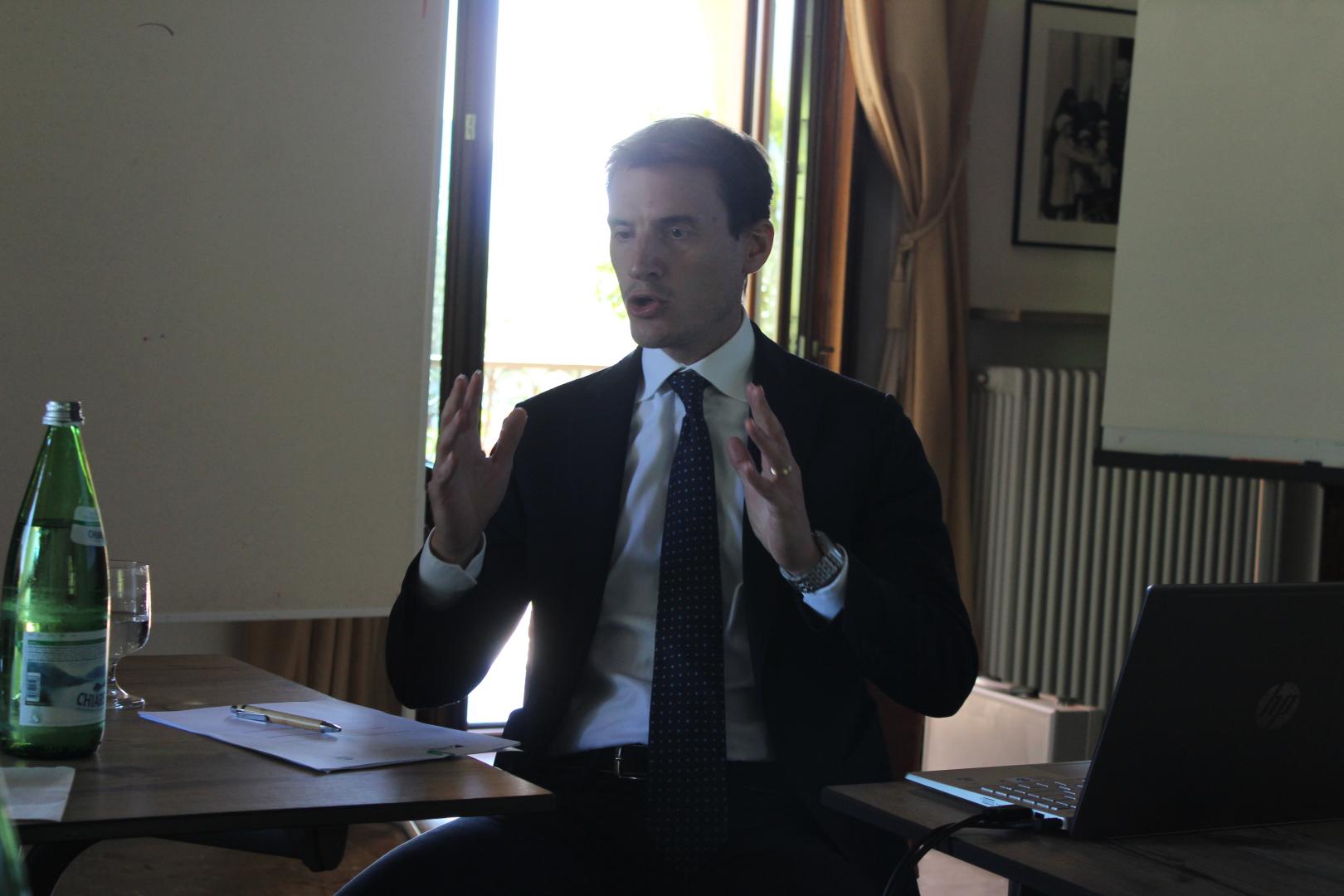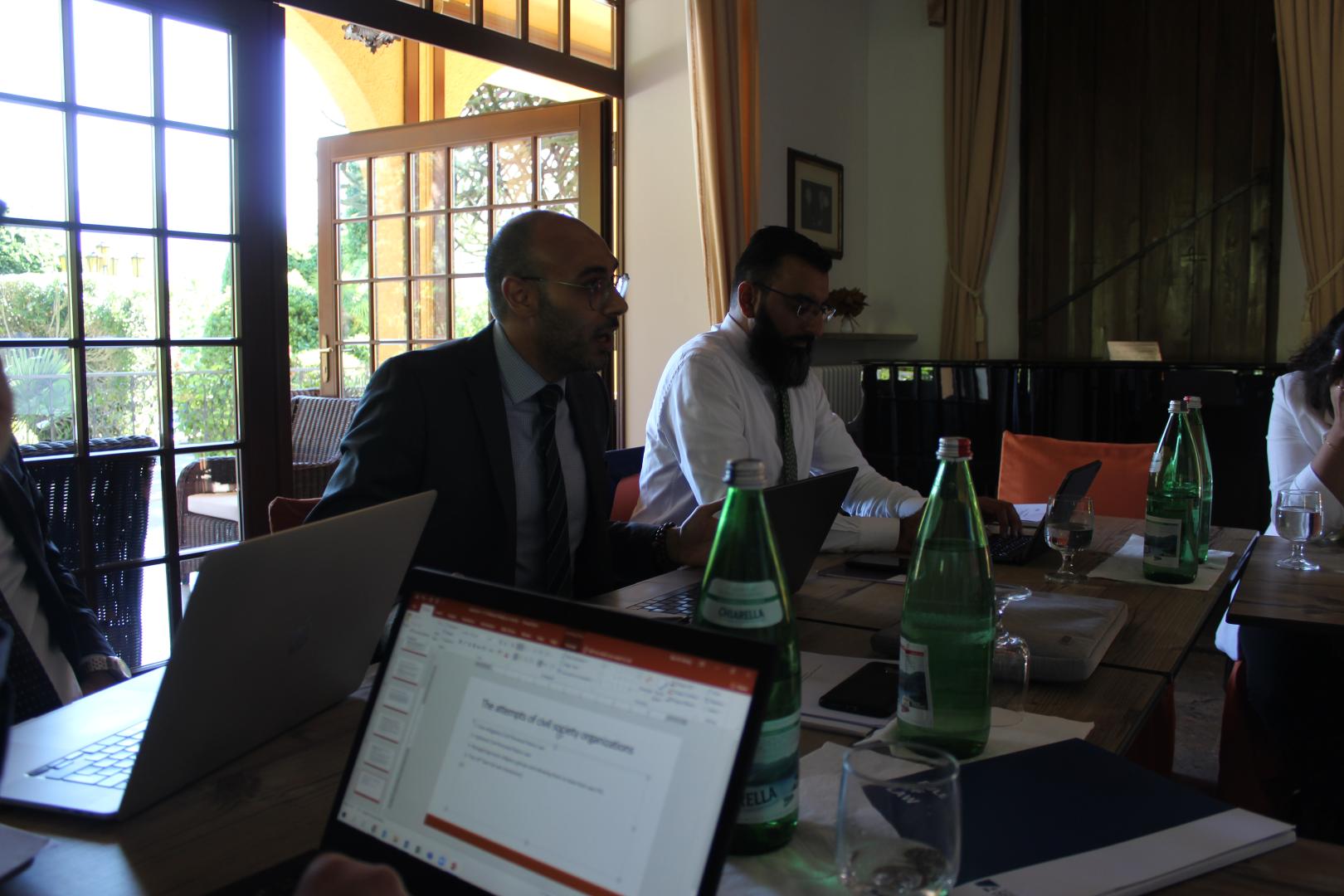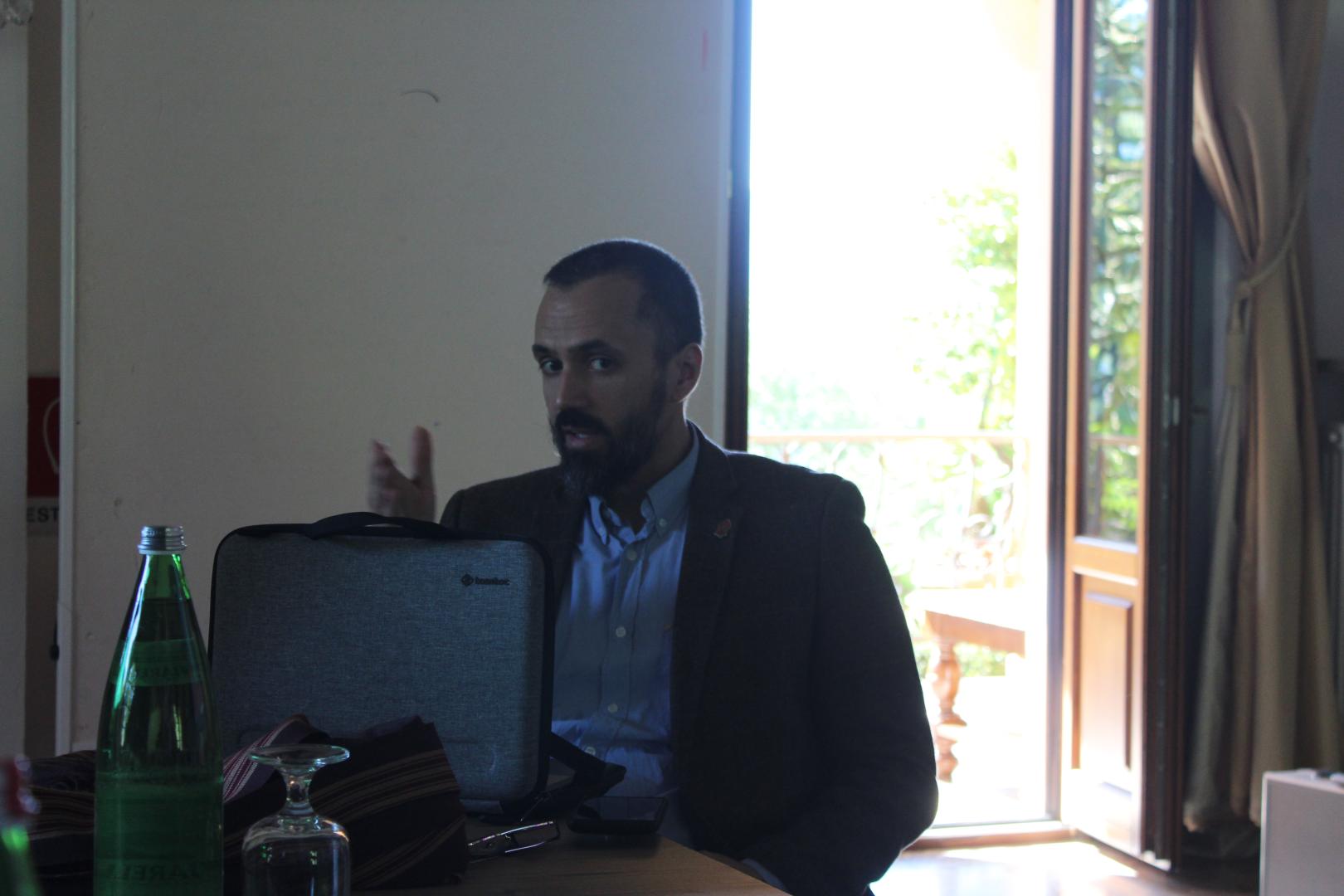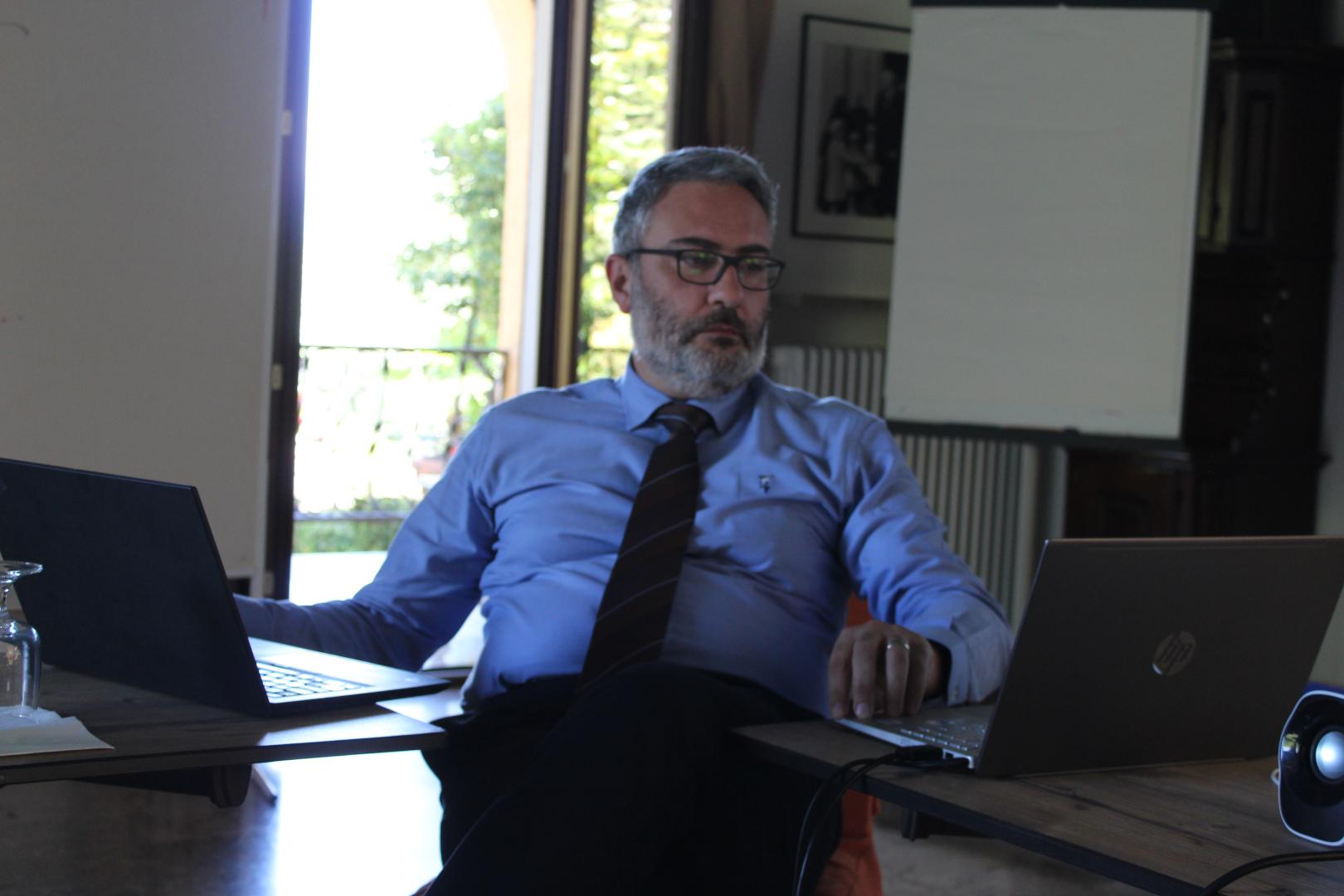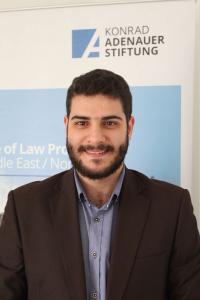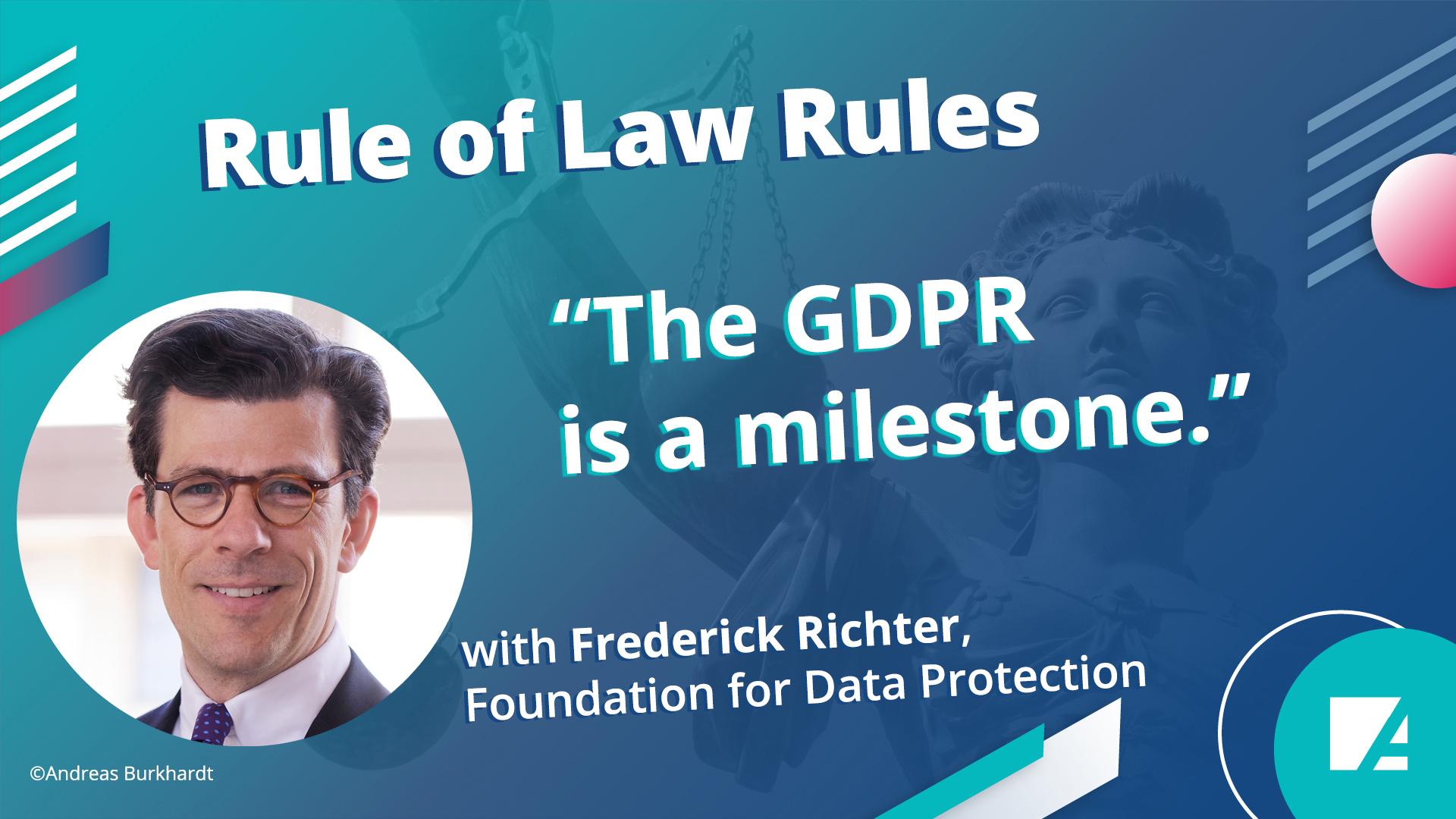Day1: Secular and religious law in the constitutional, political and civic spheres
During this first day of the roundtable, four keynote panels were held and they were as following:
Keynote panel 1: Secularism, civil states and religion in the MENA region (Dr. Hisham A. Hellyer; Faculty of Asian and Middle Eastern Studies, University of Cambridge; Carnegie Endowment for International Peace; Royal United Services Institute)
Keynote panel 2: Religion in post Arab-spring constitution-making processes (Dr. Francecso Biagi, University of Bologna; Co-founder of the MENALegalNetwork)
Keynote panel 3: What space for reform? The case of Lebanon’s 15 different religious family laws (Dr. Elie Al Hindy, Executive Director of Adyan Foundation)
Keynote panel 4: Religious vs secular political parties: democratic actors or spoilers? (Ms. Maysaa Shujaa al-Deen, Senior Researcher, Sana’a Center for Strategic Studies, Yemen)
Day 2: Secular and religious law in the religious and judicial spheres
During this second day of the roundtable, three keynote panels were held and they were as following:
Keynote panel 5: The religious authorities and their impact on the process of reforming personal status in Tunisia and Egypt (Dr. Imen Gallala-Arndt, Max Planck Institute for Social Anthropology)
Keynote panel 6: The role of judicial authorities: religious courts (Mr. Siraj Khan LL.M., Universität TÜbingen; Co-Founder of the MENALegalNetwork)
Keynote panel 7: The role of judicial authorities: supreme/constitutional courts (Mr. Islam Mohammed LL.M., Central European University; Co-Founder of the MENALegalNetwork)
Each keynote panel consisted of a presentation and a Q&A session, which were very interactive, rich, fruitful, lively and vivid.
To conclude this expert roundtable, we can undoubtedly say that religion is not just a belief system which falls into the private life of each individual; in the Middle East and North Africa, in particular, it has a public aspect that affects the life of thousands and millions of people, be they religious or not. As an aspect of a group of people’s identity, religion undeniably play a pivotal role in many MENA countries in drawing its legal and constitutional framework. It regulates essential notions and rights, thus a paramount subject to highlight.



